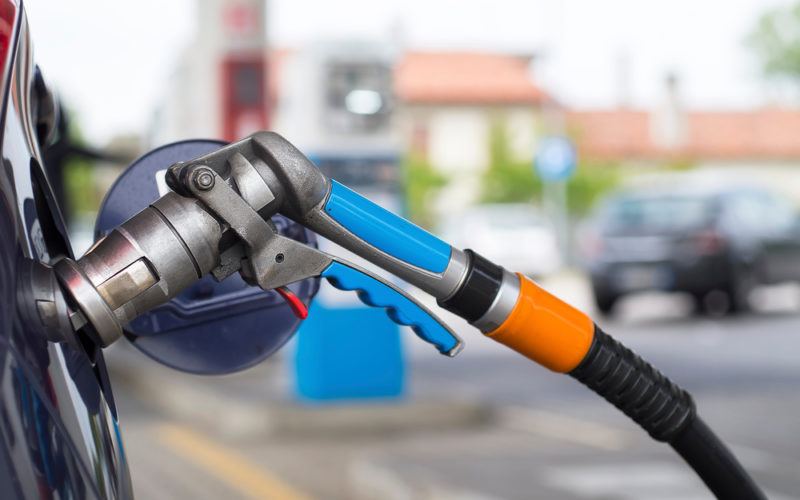“If we want to effectively hit the Russian economy, we should impose sanctions on LPG at the EU level, but above all include more important goods, including, above all, natural gas imported via gas pipelines and LNG terminals,” says Kamil Lipiński, an analyst at the Polish Economic Institute.
BiznesAlert.pl: Over a year ago, the Polish government announced that by the end of 2022 it would completely phase out the import of LPG (liquefied petroleum gas) from Russia. Meanwhile, this raw material is still available on the market. Not only has Poland not stopped buying Russian LPG, but it still gets most of its import from Russia. According to the latest data of the Polish Organization of Liquid Gas, in the first quarter of 2023 purchases in Moscow accounted for almost 51 percent of all import into the country. Why can’t Poland stop importing LPG from Russia? Is this due to economic reasons?
Kamil Lipiński: In order to be effective, sanctions should have three dimensions: they must concern goods that are economically important to the sanctioned state, they must be impactful and durable. When it comes to LPG, there are challenges at all of the three levels. According to Eurostat, for Russia, LPG accounted for only 1 percent of the value of its export to the EU in the first 4 months of 2023. Sanctions should primarily cover goods that are more important to Russia’s export, such as natural gas.
Moreover, for sanctions to be effective, they should not be easy to circumvent. LPG is little dependent on transmission infrastructure and is transported primarily by rail (52 percent of imports to Poland in 2022) and by sea (40 percent), so in such a situation, sanctions should prevent the import of LPG not only to Poland, but to the EU, to the entire internal market of the European Union, in order to limit the possibility of them being bypassed.
In addition, if we want the sanctions to be permanent, we must consider the fact that Poland is not only the main importer of Russian liquefied petrochemical gas (69 percent of imports of the entire EU), but also an exporter to, among others, Ukraine (75% of EU LPG exports to Ukraine). As much as 48 percent of Russian LPG imported to Poland may be re-exported to Ukraine. The immediate restriction on imports of this raw material could hamper supplies to the Ukrainian market and affect the Ukrainian economy and the situation of the civilian population.
The importance of economic impact should be also considered. Sanctions, first of all, should be aimed at the subject of sanctions and not at the one who imposes them, and from the perspective of Russia, these amounts are small. According to Eurostat, in the period from January to April 2023, total exports of LPG to the EU countries amounted to 191 million euros (in Poland 134 million euros), accounting for less than 1 percent of all goods imported from Russia during this period.
Once we compare this data to natural gas, the difference between these two imported commodities becomes obvious. The Union imports about 75 mcm of natural gas per day via gas pipelines alone and a similar amount in the form of LNG, and the market value of the amount of raw material imported in a week is equal to the value of LPG imported for several months. This is tens of billions against hundreds of millions, and that is what we should be focusing on.
If we want to effectively hit the Russian economy, we should cover LPG with sanctions at the EU level, but above all cover more important goods, including, above all, natural gas imported via gas pipelines and LNG terminals.
Is the fact that Poland imports so much from one place a threat?
Of key importance for the security of fuel supply in Poland are stocks, collected on the basis of the Act on Stocks of Crude Oil, Petroleum Products and Natural Gas. According to these rules, traders engaged in the production or marketing of LPG should maintain stocks of 30 days of average imports in the previous year. That gives us a margin of safety. LPG is a commodity that can be stored and imported from other directions, so its economic value is relatively small, accounting for 10 percent of Polish imports from Russia. Moreover, LPG has substitutes-gasoline and diesel, the reserves of which are even greater (53 days).
There are also EU countries that remember well the oil crisis in the 1970s, and they have been systematically developing appropriate security systems, supplies and import infrastructure, which further increases the level of security of Poland. Both fuel prices and availability in the EU are monitored and analyzed on an ongoing basis by the European Commission, which publishes weekly reports on the matter. Poland’s security in the event of sanctions on Russian LPG or a political halt to its exports by Russia would not necessarily translate into difficulties with access to this fuel in Poland.
Interview by Jacek Perzyński

 PL
PL EN
EN





